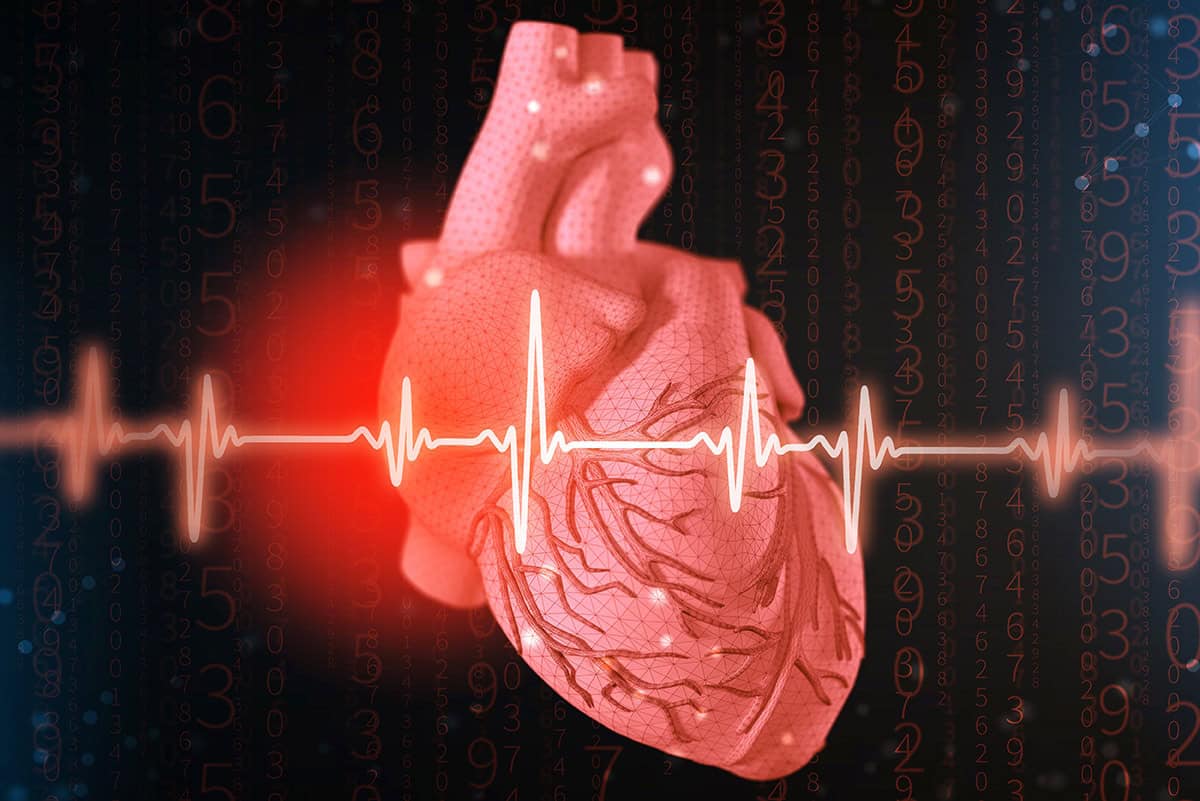Science
AI Model EchoNext Surpasses Cardiologists in Heart Disease Detection

A new deep-learning model named EchoNext has demonstrated a remarkable ability to identify patients at high risk of structural heart disease (SHD), outperforming cardiologists in the process. Developed by researchers at Columbia University and NewYork-Presbyterian Hospital, this innovative approach could significantly enhance early detection and treatment for conditions that affect millions globally, such as heart failure and valvular heart disease.
SHD is often underdiagnosed due to the complexities and costs associated with echocardiograms, the standard diagnostic tool for these conditions. Late diagnosis can lead to avoidable deaths and a decline in patients’ quality of life, placing additional strain on healthcare systems. EchoNext aims to address these challenges by analyzing electrocardiogram (ECG) traces, which are less expensive and more commonly collected than echocardiograms.
The model utilizes a convolutional neural network, a type of AI that processes ECG data in segments, generating insights into each segment and assigning a numerical weight to the findings. This allows EchoNext to assess whether a patient exhibits markers indicative of SHD, thereby determining the necessity for further echocardiographic evaluation.
In its development, EchoNext was trained on over 1.2 million ECG traces from 230,000 patients. In a study published in Nature, researchers tested the model on ECG data from 85,000 patients, identifying 9% as high-risk for undiagnosed SHD. Remarkably, 55% of these patients went on to receive their first echocardiogram, leading to a positive diagnosis in nearly 75% of cases—double the typical positivity rate for first-time echocardiograms.
Furthermore, EchoNext outperformed a group of 13 cardiologists in diagnosing heart issues from 3,200 ECGs. The model accurately flagged 77% of structural heart problems, while the cardiologists achieved an accuracy rate of only 64%. This finding surprised the researchers, as Pierre Elias, assistant professor at Columbia University Vagelos College of Physicians and Surgeons and medical director for artificial intelligence at NewYork-Presbyterian, noted the traditional belief that heart conditions could not be detected through ECGs.
Elias initiated the EchoNext project following a personal experience where a patient was transferred with critical valvular heart disease but was diagnosed too late. He expressed a common frustration in cardiology: “You can’t take care of the patient you don’t know about. So we asked: is there a way that we can do a better job with diagnoses?”
Currently, EchoNext is undergoing a clinical trial across eight hospital emergency departments, set to conclude in 2026. Elias emphasizes the importance of gathering clinical evidence to validate the model’s safety and effectiveness, aiming for widespread adoption that could benefit numerous patients.
Although still in its early stages, EchoNext has already been recognized as a breakthrough technology by the US Food and Drug Administration (FDA). Elias highlighted the positive impact on patients, stating, “Every week we meet patients that this has helped. Our goal is to influence as many patients as possible over the next 12 months.”
The potential applications of EchoNext extend beyond cardiology, as the AI model currently detects 13 types of heart disease. Elias believes that similar systems could be developed for other areas in healthcare, making AI-augmented biomarkers a standard component of clinical practice in the future.
As advancements in medical technology continue to evolve, EchoNext represents a significant step forward in the early detection of heart disease, potentially saving countless lives and improving the overall health landscape.
-

 Health3 months ago
Health3 months agoNeurologist Warns Excessive Use of Supplements Can Harm Brain
-

 Health3 months ago
Health3 months agoFiona Phillips’ Husband Shares Heartfelt Update on Her Alzheimer’s Journey
-

 Science2 months ago
Science2 months agoBrian Cox Addresses Claims of Alien Probe in 3I/ATLAS Discovery
-

 Science2 months ago
Science2 months agoNASA Investigates Unusual Comet 3I/ATLAS; New Findings Emerge
-

 Science1 month ago
Science1 month agoScientists Examine 3I/ATLAS: Alien Artifact or Cosmic Oddity?
-

 Entertainment5 months ago
Entertainment5 months agoKerry Katona Discusses Future Baby Plans and Brian McFadden’s Wedding
-

 Science1 month ago
Science1 month agoNASA Investigates Speedy Object 3I/ATLAS, Sparking Speculation
-

 Entertainment4 months ago
Entertainment4 months agoEmmerdale Faces Tension as Dylan and April’s Lives Hang in the Balance
-

 World3 months ago
World3 months agoCole Palmer’s Cryptic Message to Kobbie Mainoo Following Loan Talks
-

 Science1 month ago
Science1 month agoNASA Scientists Explore Origins of 3I/ATLAS, a Fast-Moving Visitor
-

 Entertainment2 months ago
Entertainment2 months agoLewis Cope Addresses Accusations of Dance Training Advantage
-

 Entertainment3 months ago
Entertainment3 months agoMajor Cast Changes at Coronation Street: Exits and Returns in 2025









